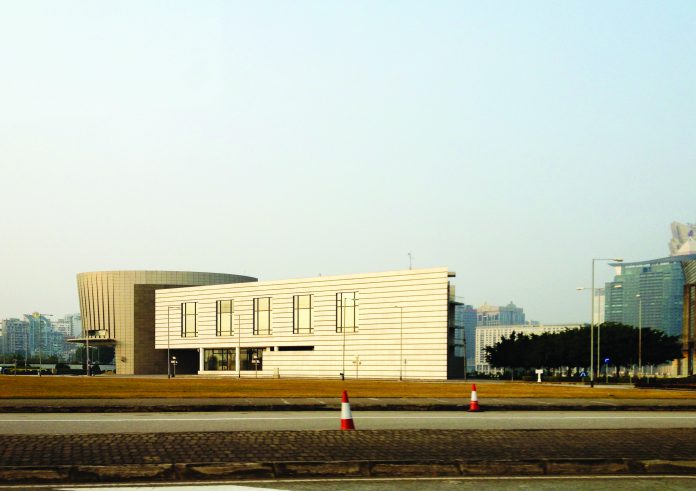Last year, weekly Portuguese-Chinese bilingual newspaper Plataforma published an interview with Jose Pedruco Achiam, number 12 in the list headed by Angela Leong, where the candidate to the Legislative Assembly revealed campaign priorities and promises.
The content was considered “electoral propaganda” by the Electoral Affairs Commission because “the article shows signs of propaganda, the candidate reveals his political programme and calls upon the vote of the electors.”
Reportedly, the interviewee was investigated by authorities and the piece was ordered removed from the Plataforma website.
At that time, several voices alerted the community to the violation of the rights enshrined in the Basic Law but the interview was even deleted from Plataforma [five months passed and nothing was known about the results of the process.]
In point of fact, in 25 years this was not the first time the Law has been violated.
The first instance occurred only six years after the establishment of the Macau SAR, when the government decided to apply Professional Tax to civil servants, resulting in a salary cut clearly banned both by the Joint Declaration and Article 98 of the Basic Law, which reproduces it.
 The process was very controversial, but only one voice was heard: lawyer Amílcar Feio successively challenged the decision before the Financial Service Bureau, the Chief Executive, the Court of Appeal and the Court of Final Appeal.
The process was very controversial, but only one voice was heard: lawyer Amílcar Feio successively challenged the decision before the Financial Service Bureau, the Chief Executive, the Court of Appeal and the Court of Final Appeal.
Some 14 years later Amílcar Feio tells Macau Business that this action “was necessary and fundamental to clarify the totally wrong and deeply unfair position the MSAR Government [had] developed and implemented [in] the legislative act.”
Feio, now living in Portugal, admits that in the historical genesis of the creation of the Professional Impulse Law for civil servants there has been “a hidden and delayed settlement of the negotiation of the Luso-Chinese Joint Declaration . . . [because] . . . in terms of legal effect the law that created the tax not complying with the Basic Law also violated the Joint Declaration.”
In a statement to Macau Business, the lawyer also criticises the role of the Portuguese State: “The behaviour of the political agents who represent the state was at the level of the indigent mediocrity and cowardice, which happened through the then Secretary of State and Minister of Foreign Affairs failing to address a single word of respect due to the compatriots they were supposed to represent. Their silence was so thick and heavy that it nearly knocked down the Great Wall . . .”
In the years that followed other situations have arisen.
Three months ago, the government proposed changes to the Judicial Organisational Law, suggesting that the national treasury, secession, insurgency against the Chinese central government or stealing state secrets should only be judged by permanently appointed Chinese judges.
The president of the Macau Lawyers Association (AAM), Jorge Neto Valente, has criticised those changes, considering them to be “discriminatory” and going against the MSAR Basic Law.
“In terms of legal effect, the law that creates the [Professional] tax not complying with the Basic Law also violated the Joint Declaration” – Amílcar Feio
But the most often violated Basic Law Article is perhaps the 25th, which declares that ‘All Macau residents shall be equal before the law, and shall be free from discrimination, irrespective of their nationality, descent, sex, race, language, religion, political persuasion or ideological belief, educational level, economic status or social conditions’.
The General Minimum Wage Act, under discussion, omits domestic workers and workers with disabilities, while the Domestic Violence Prevention and Prevention Act excludes same-sex couples.
We find an example similar to this in the Law of Higher Education, which says there should be internships for students, whether they are residents of the MSAR or not. But only residents can be paid.
And Article 95 . . . ?

Annex I of the Basic Law of Macau states that the Electoral Commission which elects the Chief Executive is composed, among others, of representatives of the members of the municipal organs.
As is well known, this does not happen and should not happen in the choice of the substitute for Chui Sai On, and this quota should be met again by members of Macau on the National Committee of the Chinese People’s Consultative Conference.
“In view of this situation, I wonder if the second, third and fourth mandates of the Chief Executives were legitimate,” asked local politician Paul Chan Wai-chi in an opinion article published in the Portuguese language press, “since they were elected through the Chief Executive’s Electoral Commission, with an imperfect composition (did not strictly obey the Basic Law of Macau). If these mandates were legitimate, then the Macau Basic Law is only a piece of paper subject to random interpretations. If they were illegitimate, whose responsibility [were they]?”
























